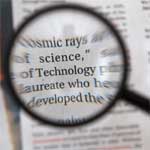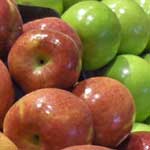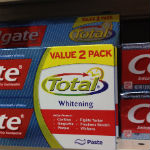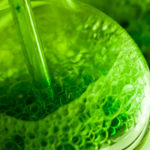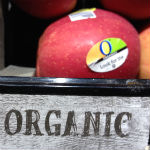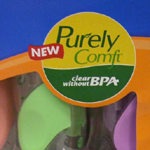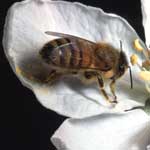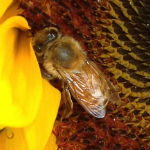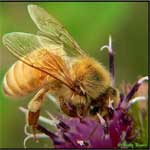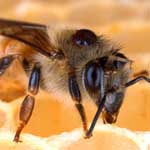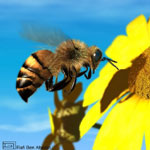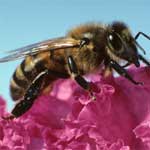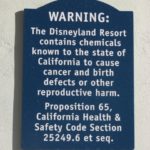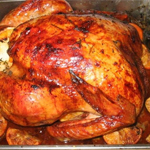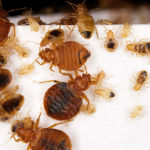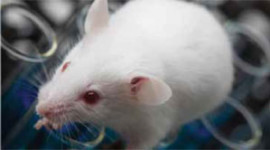"Weight Of Evidence: How To Make Sense Of Reports On Toxicology And Pesticides," by News Staff at Science 2.0. There are tens of thousands of human-made chemicals circulating today and some have been bad despite studies that didn't initially find harm, yet almost every chemical is under siege by environmental groups, and they all claim science is on their side. Everything from bisphenol A used in plastics to neonicotinoid pesticides to glyphosate weed-killers are criticized by lawyers at … [Read more...]
BPA in Food Packaging is Safe Safe Even for Kids & Babies
"European Food Safety Authority Confirms BPA Safety—Again," By Angela Logomasini on CEI.org. The debate over the chemical Bisphenol A (BPA) has raged for years, with environmental activists continually hyping the risks associated with it. Used to make hard-clear plastics and resins that line food containers such as soda cans or canned fruits and veggies, humans have been exposed to trace levels of the chemical for decades without evidence of any ill effects. And a recent review of the science … [Read more...]
Endocrine Disrupter Debate
“The Science of the ‘Endocrine Disrupter’ Debate” Explains the Absence of Science," By American Council on Science and Health. In the recent Independent Women’s Forum, CEI’s Angela Logomasini dissects the hype from the facts about so-called “endocrine disrupting” chemicals. She points out (as we here at ACSH have been saying for years) that the term itself has no real scientific or medical meaning, outside of its repeated (emphatic) use by those with an anti-chemical agenda and their pals in … [Read more...]
Data Show Yet Again: Pesticide Residues Are Negligible
"Agriculture Shows Responsible Pesticide Use," By Dale Hildebrant. You usually don't have to look far to find some group that criticizes the use of pesticides in the agricultural industry. Food safety groups, consumer organizations and even a scattering of ag groups condemn the use of pesticides when it comes to raising crops of any kind. But recently some good news about pesticide use was reported and it came in the form of the annual Pesticide Data Program. This is a collaborative effort … [Read more...]
Bring Back BPA!
"Bring Back BPA!" By Julie Gunlock. A few years ago, the BPA-free movement launched as misinformation about the chemical BPA (a chemical that has been the focus of thousands of safety studies and has been used for over 50 years) began hitting news stands. So, what replaced BPA? Another chemcial called BPS. But now, the chemphobes are complaining about this replacement chemical saying it too is dangerous. Goodness, what are moms to do now? They're going to have to throw out all those BPA-free … [Read more...]
Myths about Triclosan Debunked
"The Debate Rages On – Triclosan/Copolymer: Debunking the Myths," by By Maria Perno Goldie, RDH, MS. There have been claims in the news lately that triclosan is unsafe for humans. As with any product, toxicity is determined by the dosage, and the amount of potentially toxic ingredients in a product. This article discusses the efficacy of dentifrices containing triclosan, and the fact that there is currently not enough evidence to recommend avoiding use of products that contain triclosan. … [Read more...]
Costs of Green Chemistry
"Consumers to Pay the Price for State Environmental Regulations," by Angela Logomasini. Consumers could soon face higher prices, reduced choices and lower-quality products, thanks to a slew of chemical regulations that are advancing in various states. These regulations are unlikely to provide any measurable benefits, and instead would reduce consumers’ access to a myriad of products, from children’s toys and canned food to paint and building materials. These regulations, pushed largely by … [Read more...]
Consumers Confused About Organic Food Rhetoric
"Study Shows Conflicting Statements on Healthy Eating May Be Impacting Low Income Consumers," By SafeFruitsandVeggies.com. A new peer reviewed study shows that conflicting messaging on food safety and nutrition may be having a negative impact on consumers, especially those with lower incomes. Researchers at the John Hopkins Center for a Livable Future conducted the study which was published in the journal Culture, Agriculture, Food and Environment and titled, “’They Just Say Organic Food Is … [Read more...]
BPA Fears Spread to BPA Alternatives
"Fear, Inc. is Having a Big Day on the New York Stock Exchange. It is Up 45 Percent on Heavy Volume," By American Council on Science and Health. How could it not be? After all, the plastic component BPS — supposedly a safe replacement for BPA — isn’t looking so great after all. BPA (bisphenol A) is a chemical so “deadly” that Times columnist Nick Kristof — by far the most accomplished toxicological expert who never took a chemistry class — refuses to touch cash register receipts because they … [Read more...]
Non-Toxic Christmas Toys
"Santa's Nontoxic Toys," By Joseph Perrone, Sc.D. Finding the perfect gift for your children this holiday season is certainly stressful—just ask Arnold Schwarzenegger’s character in Jingle All the Way. But while you might worry whether you’ve picked the trendiest doll or the coolest video game, you shouldn’t have to worry about whether your gifts (or Santa’s!) might be toxic to your kids. Read more. … [Read more...]
Activist Science and Honeybees
"Activist Science Undermines Research on Honeybees and Pesticides," by Angela Logomasini. As reported in a blog post by David Zaruk, some of the “science” on the impact of neonicotinoid pesticides on honeybees appears to have resulted from a pre-orchestrated campaign, rather than an unbiased scientific process. The researchers involved are members of the International Task Force on Systemic Pesticides, which is part of the International Union for Conservation of Nature (IUCN). The task force … [Read more...]
Top Ten Scares of 2014
"ACSH’s Top 10 Health Scares of 2014," by American Council on Science and Health. 10.The Food Babe attacks ingredient found in Subway bread The chemical azodicarbonamide is used in baking as a dough conditioner, meant to improve the strength and workability of the dough, as well as to increase the speed at which the dough rises. It is a common ingredient in bread. Azodicarbonamide is generally recognized as safe (GRAS) by the U.S. FDA, and is thus considered safe to be added to foods. Read … [Read more...]
Toxic Chrismas Decorations?
“Watchdog” Group Warns about “Toxic” Christmas Decorations. Ignore Their Barking," by American Council on Science and Health. Where would one normally expect to find such a sensational story: What could be worse than getting a bag of coal for Christmas? A bag full of toxic chemicals, health groups say. A new report from HealthyStuff.org finds toxic chemicals in many of the popular Christmas decorations like Santa Clause [sic] hats, Christmas lights, stockings, and wreaths that were tested. We … [Read more...]
Bee Experts Dismantle Touted Harvard Study
"Bee Experts Dismantle Touted 'Harvard' Neonics-Colony Collapse Disorder Study As 'Activist Science,'" by Jon Entine. Chensheng Lu was in his element last month at a speech before a green group at Harvard Law School. The School of Public Health professor was lecturing on his favorite topic--his only subject these days, as it has become his obsession: why he believes bees around the world are in crisis. Lu is convinced, unequivocally, that a popular pesticide hailed by many scientists as a less … [Read more...]
Pseudo-Science, Neonics, and Honeybees
"Still More Politicized Pseudo-Science? The Neonics and Honeybees Saga Takes Interesting, Potentially Fraudulent Turn," by Paul Driessen. Insisting that scientific evidence shows a clear link between neonics and honeybee population declines, EU anti-insecticide campaigners persuaded the European Union to impose a two-year ban on using the chemicals. Farm organizations and the Union’s Environment, Food and Rural Affairs Department unsuccessfully opposed the ban, arguing that evidence for a link … [Read more...]
Congress Should Stop Funding Activist Science on BPA
"A Taxpayer-Funded Family Feud," By Tom Schatz. It is bad enough when an agency spends taxpayer money foolishly, but it is even worse when those expenditures end up undermining the conclusions of another agency. Between 2000 and 2014, the National Institute of Environmental Health Sciences (NIEHS), part of the National Institutes of Health (NIH), sent $172.7 million in grant money to scientists to study the chemical bisphenol A (BPA) and its effect on humans, particularly as an endocrine … [Read more...]
Honeybee Hype and Scandal
"IUCN’s Anti-Neonic Pesticide Task Force: An Exposé into Activist Science," By The Risk Monger. The Risk-Monger recently came across a strategy document carelessly left on-line by activist scientists that lies at the heart of the founding of the IUCN Taskforce on Systemic Pesticides. The Addendum to this document (see page 3) spells out a rather distasteful anti-neonicotinoid campaign strategy lacking in scientific integrity. The process has been tried and tested before by activists, but their … [Read more...]
U.S. Farmers Need to Challenge Anti-Pesticide Policies
"A Wake-Up Call For U.S. Farmers: The EPA Is Trying To Put You Out of Business, By Henry L. Miller. The Environmental Protection Agency is arguably the worst regulatory agency in the history of the world. But perhaps I understate. EPA has long been highly politicized, disdainful of science, relentlessly incompetent and corrupt. The agency is a miasma populated by the most radical, disaffected and anti-industry discards from other agencies, who collude secretly and sometimes illegally with … [Read more...]
EWG’s Anti-Food Preservative Hype
"EWG Claims about Food Additives Don’t Add Up," By Angela Logomasini. Now that your holiday Turkey leftovers are done or nearly so, let’s again look at some of the Environmental Working Group’s (EWG) “dirty-dozen” food additives. We already debunked claims about “dangers” lurking in your bacon with a slice of bread, but what about chemicals found in muffins, potato chips, cereal, and sausage? Each of these food items contains chemicals on EWG’s list that the group notes regulators have … [Read more...]
Organic Food Marketing and Homeopathy
"Top Organic Marketing Trustees Resign Because A Member Ridicules Homeopathy," By Hank Campbell. Psychics, homeopaths, magic soap buyers, anti-vaccine and anti-energy people, they all share one thing in common - no, no, not the same political party (good guess, though!), they embrace organic food. And if you don't also embrace their giant swath of superstitious crackpottery, they might depart in a huff. Now that Big Organic is a $105 billion industry, I suspect they would like to quietly but … [Read more...]
Video: Jon Entine Interview on Honeybees
"Jon Entine Debunks Theory Linking Neonic Pesticides to Honeybee Collapse," by American Council on Science and Health. In a masterful example of thorough scientific reporting, Jon Entine makes it clear that the recent accusations that the group of pesticides called neonicotinoids (“neonics”) is responsible for Colony Collapse Disorder (CCD) of honeybees are baseless. Such accusations are bound to be concerning, since honeybees are responsible for pollinating many crops — both here and in … [Read more...]
Prop 65 Lawsuits Galore
"Some Sense from California — At Last," By American Council on Science and Health. Screen Shot 2014-05-29 at 1.07.00 PMCalifornia’s Proposition 65 is a law that helps no one — except perhaps trial lawyers and bounty hunters. As we have pointed out in the past, it certainly does nothing to benefit public health, and according to a recent opinion piece in the Sacramento Bee, it hurts small businesses. Mark Snyder, a small business owner, clearly points out the deficits in the law. He notes that … [Read more...]
Before You Eat that Turkey … Watch This!
"Enjoy Your Holiday Dinner — Chemicals and All!," By American Council on Science and Health. The focus of the ACSH holiday menu is on “carcinogens,” defined here as chemicals, either natural or synthetic, that cause cancer in rodents when consumed in large amounts. A related topic, however, is that of “poisons,” technically known as toxicants. Just as it is scientifically unwarranted to believe that the food supply is free of natural rodent carcinogens and mutagens, it is equally unrealistic to … [Read more...]
Flawed Studies on Neonics and Bees
"Part II: Bee Deaths And CCD - Flawed Chensheng Lu Harvard Studies Endanger Bees,"By Jon Entine. Last week, in Part I of this two part series, "Bee Deaths Mystery Solved? Neonicotinoids (Neonics) May Actually Help Bee Health”, we explored the claims by Harvard School of Public Health researcher Chensheng Lu, heralded by anti-pesticide and anti-GMO advocacy groups, for his research that purportedly proves that the class of chemicals known as neonicotinoids are killing bees and endangering … [Read more...]
DDT, Bedbugs, and Beyond
"ACSH friend R. Kozlovich’s Ode to Banned, Lifesaving DDT," by American Council on Science and Health. Don’t get on Rich Kozlovich’s bad side. He calls out those who foment harmful, unscientific and agenda-driven messages, especially when they impinge upon his area of expertise: pesticides, and the pests who fear them: both 8-legged and 2-legged, we should emphasize. In his recent “Paradigms and Demographics” blog, which is entitled Repealing the Ban on DDT is Bigger Than Bed Bugs!, he takes on … [Read more...]
